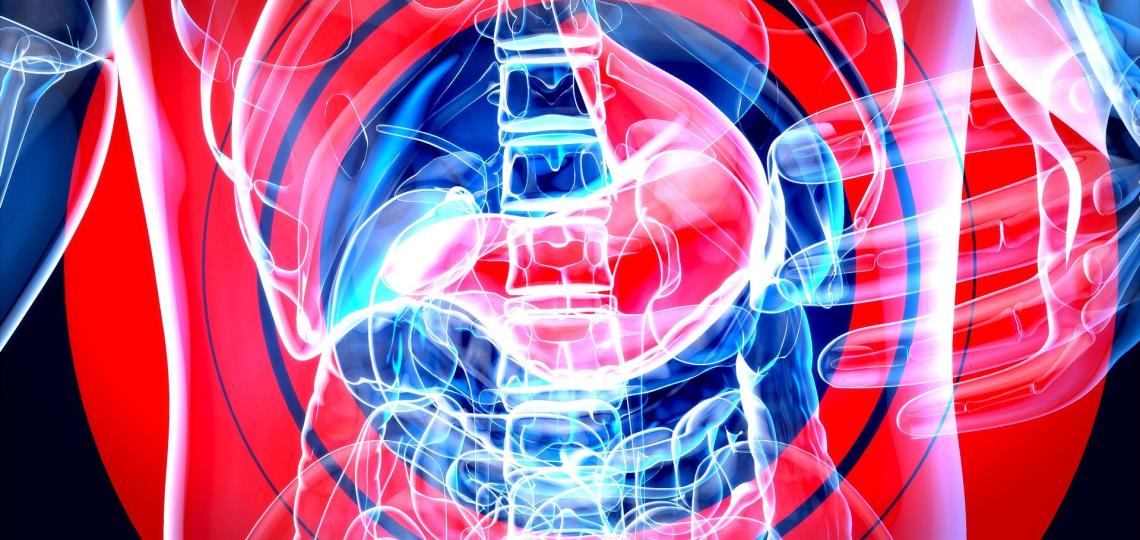- July 18, 2023
- BugSpeaks
- On Microbiome
How to Improve Your Gut Health Based on Your Microbiome Analysis Results
Your gut health is essential for your overall well-being. The gut microbiome, which is the community of bacteria that live in your gut, plays a vital role in digestion, immunity, and even mental health.
If you're interested in improving your gut health, you may be considering getting a gut microbiome test. This test can give you insights into the diversity and balance of your gut bacteria, which can help you identify areas where you can make improvements.
We'll discuss how to interpret your microbiome analysis results and how to use them to improve your gut health. We'll also introduce Bugspeaks, a gut microbiome test that provides personalized nutritional recommendations based on your analysis results.

Understanding the Gut Microbiome
Understanding the importance of gut health and its impact on overall well-being has gained significant attention in recent years. The human gut harbors a diverse community of microorganisms known as the gut microbiome. Advancements in technology have allowed us to analyze and interpret the composition of our microbiome, providing valuable insights into our health. In this blog post, we will explore how you can improve your gut health based on the results of your microbiome analysis. By leveraging the power of personalized data, you can make informed choices to optimize your gut health and enhance your overall quality of life.
The gut microbiome is a complex ecosystem that contains trillions of bacteria. These bacteria play a variety of roles in your health, including:
1. Digesting food and absorbing nutrients
2. Regulating the immune system
3. Producing vitamins
4. Protecting against harmful bacteria
5. Maintaining a healthy gut lining
The composition of your gut microbiome is influenced by a variety of factors, including your diet, lifestyle, and genetics. A healthy gut microbiome is diverse and balanced, with a variety of different types of bacteria.
Introducing Gut Microbiome Analysis
Microbiome analysis involves sequencing and analyzing the DNA of microorganisms present in your gut. The results of this analysis provide a detailed breakdown of the types and relative abundances of different microbial species residing in your gut.
These results can help identify imbalances or dysbiosis in your gut microbiome, which can be associated with various health issues such as digestive disorders, immune dysfunction, and mental health conditions.
By understanding your microbiome analysis results, you can gain insights into the specific microbial populations that may require attention. Look for key indicators such as decreased microbial diversity, overgrowth of certain species, or the presence of potentially harmful bacteria. This information forms the foundation for personalized interventions to improve your gut health.
Gut microbiome analysis is a test that can assess the diversity and balance of your gut bacteria. This test is typically done by collecting a stool sample and sending it to a laboratory for analysis.
The results of a microbiome analysis can provide you with insights into your gut health, including:
1. The overall diversity of your gut bacteria
2. The relative abundance of different types of bacteria
3. The presence of any harmful bacteria
Importance of Interpreting Microbiome Analysis Results
The results of a microbiome analysis can be complex, but it's important to understand them so that you can make informed decisions about your gut health.
Bugspeaks can help you interpret your results and develop a personalized nutritional plan for improving your gut health.
Tailoring Your Diet for Optimal Gut Health
One of the most impactful ways to improve your gut health is through dietary modifications. Your microbiome analysis results can guide you in making informed decisions about your food choices. Incorporate a variety of whole foods rich in fiber, such as fruits, vegetables, legumes, and whole grains. Fiber acts as a prebiotic, providing nourishment for beneficial bacteria in your gut. Aim for a diverse range of plant-based foods to promote gut microbial diversity.
Additionally, consider incorporating fermented foods into your diet. These include yogurt, sauerkraut, kefir, and kimchi. Fermented foods contain probiotics, live microorganisms that confer health benefits when consumed. Probiotics can help restore and maintain a healthy balance of bacteria in your gut.
Bugspeaks Recommendations for Gut Health Enhancement
Bugspeaks is a gut microbiome test that provides personalized recommendations based on your analysis results. The report provides nutritional recommendations and meal plans based on the choice of the customer.
The plan may include dietary changes, lifestyle modifications, or the use of supplements.
Conclusion
Improving your gut health can have a positive impact on your overall well-being. By understanding your microbiome analysis results and making changes to your diet and lifestyle, you can improve the diversity and balance of your gut bacteria, which can lead to improved digestion, immunity, and mental health.








